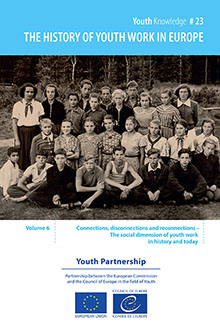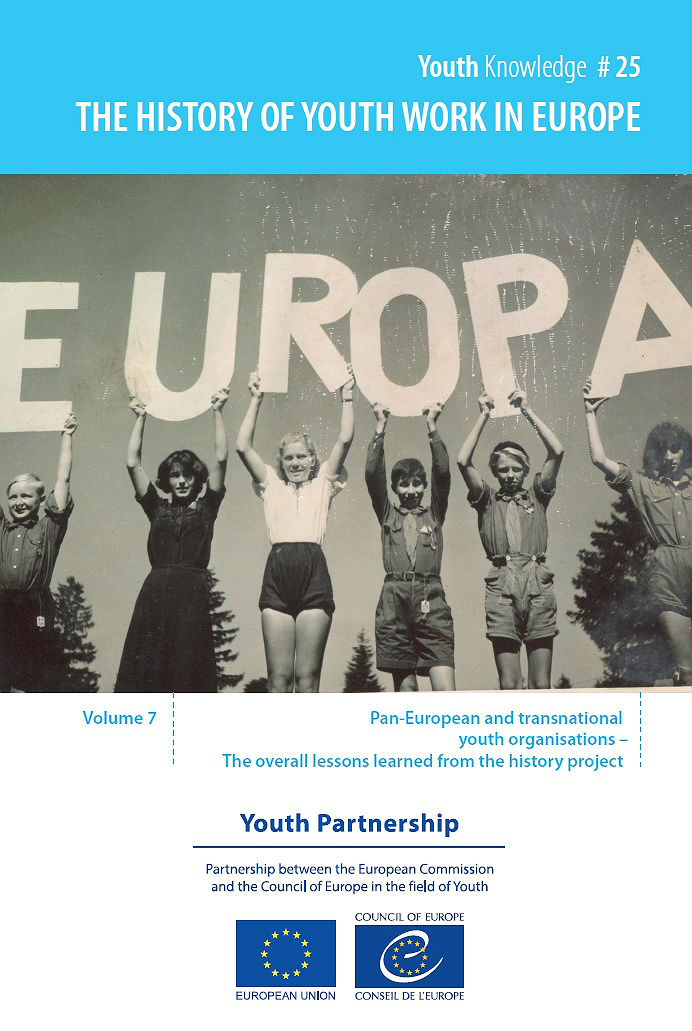The history of youth work volume 6

Howard Williamson, Tanya Basarab and Filip Coussée (eds.)
Council of Europe, 2018. 978-92-871-8513-6
This sixth publication in the History of Youth Work in Europe project based on the workshop held in Malta – Connections, Disconnections and Reconnections: The Social Dimension of Youth Work, in History and Today – looks at the relationship between youth work and social work and the role youth work can play in the social inclusion of young people.
Contributors have reflected on concepts, tools and support measures for more vulnerable and often socially excluded young people and have sought to promote a common understanding of youth work as a social practice.
The workshop that led to this book sought to understand where youth work has positioned itself from its origins, through its development, to its contemporary identity. Is youth work as much a social practice as a non-formal educational one? Where does the balance between these two dimensions lie? What are the mutually enriching dimensions of these two fields in terms of their impact on young people’s lives?
While most agree that youth work needs to be further defined as a practice or profession in itself and that the process of shaping its identity continues in different ways in different countries, it is clear that when it comes to a cross-sectoral perspective and youth work’s interaction with social work,
the picture becomes significantly more complex, arguably much richer and certainly more dynamic than might have hitherto been foreseen.
Download The History of youth work in Europe - Volume 6 >>

Council of Europe, 2019. 978-92-871-8965-3
Why have political, social or environmental causes often been behind the origin and evolution of youth organisations? Have other ideas been influential too? Why have some organisations expanded well beyond their countries of origin? To what extent have they held firm to their original values and purpose, and to what extent have they adapted and evolved in changing circumstances? How have they related to youth policy or youth work agendas? How vulnerable have they been to ideology, context or political influences? Which of their characteristics have persisted over time? These are some of the questions that are explored in this book, which draws on contributions from the last seminar on the history of transnational youth organisations and their relation to youth work today.
This book has three parts. The first explores the evolution of transnational youth organisations and movements over the past 100 years. The second adds two more country histories of youth work to the body of knowledge already established in earlier volumes in the series. The third and final part focuses on 12 “trilemmas” and reflections that have emerged from the 10-year History of Youth Work in Europe project. This anchors an invitation to the youth work community to consider and debate each trilemma, independently and in relation to each other, in the context of both the local environments of youth work delivery and across the wider European youth policy context, in anticipation of the 3rd European Youth Work Convention.
